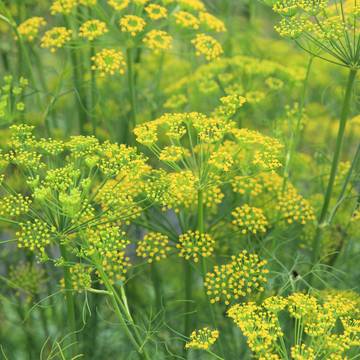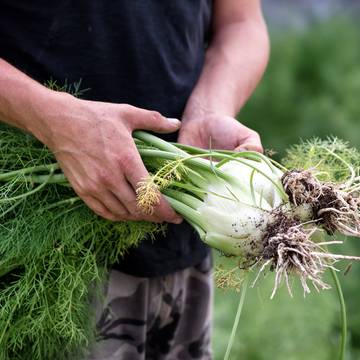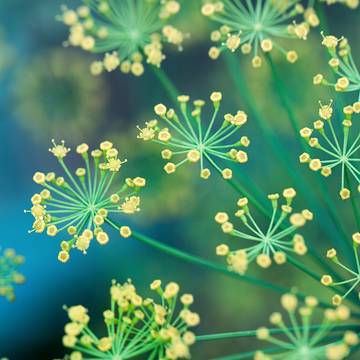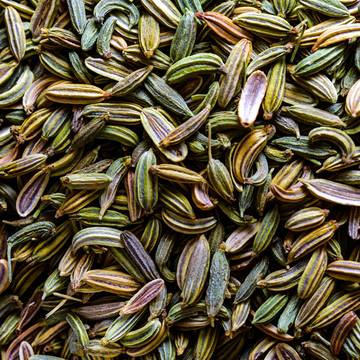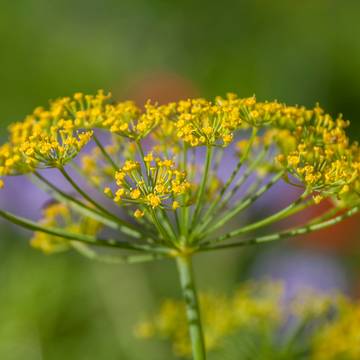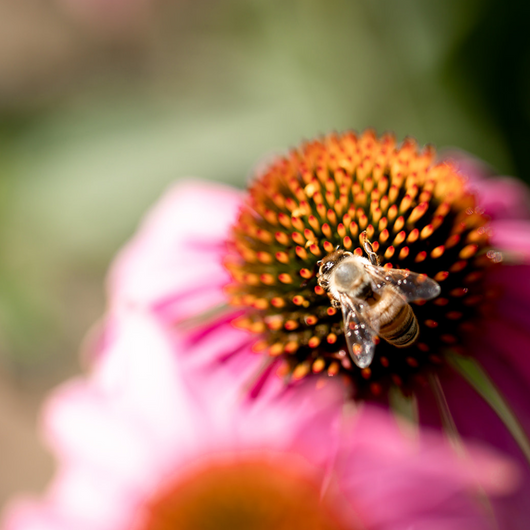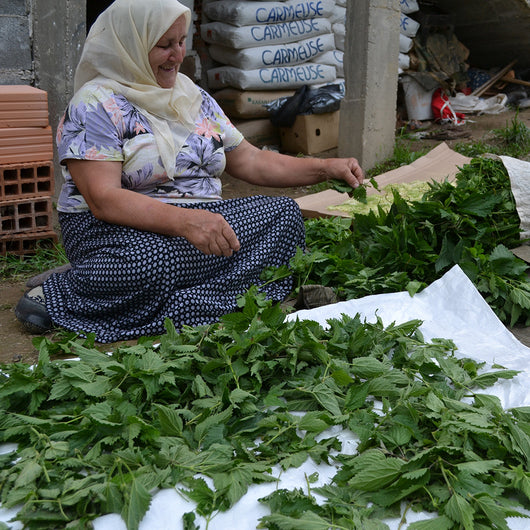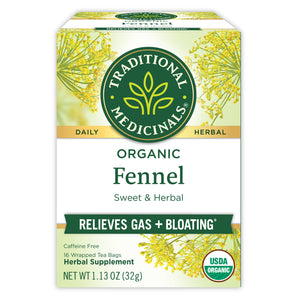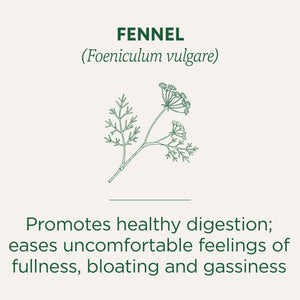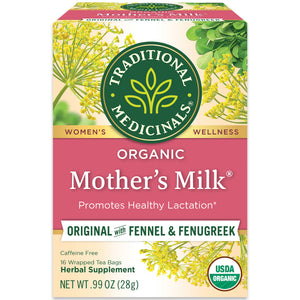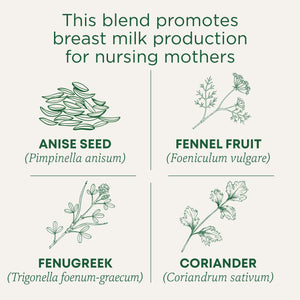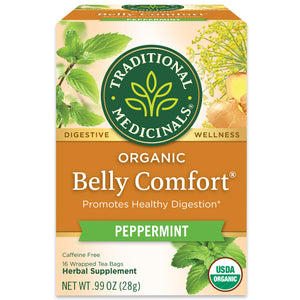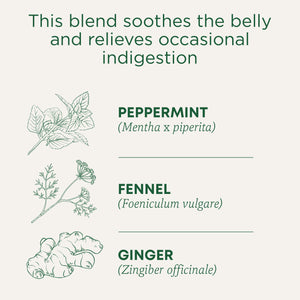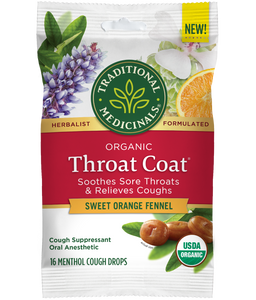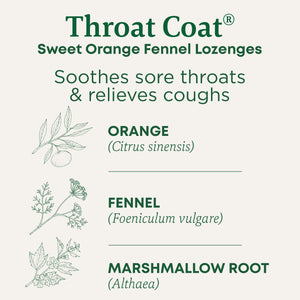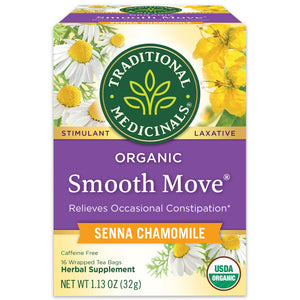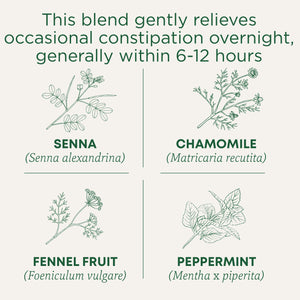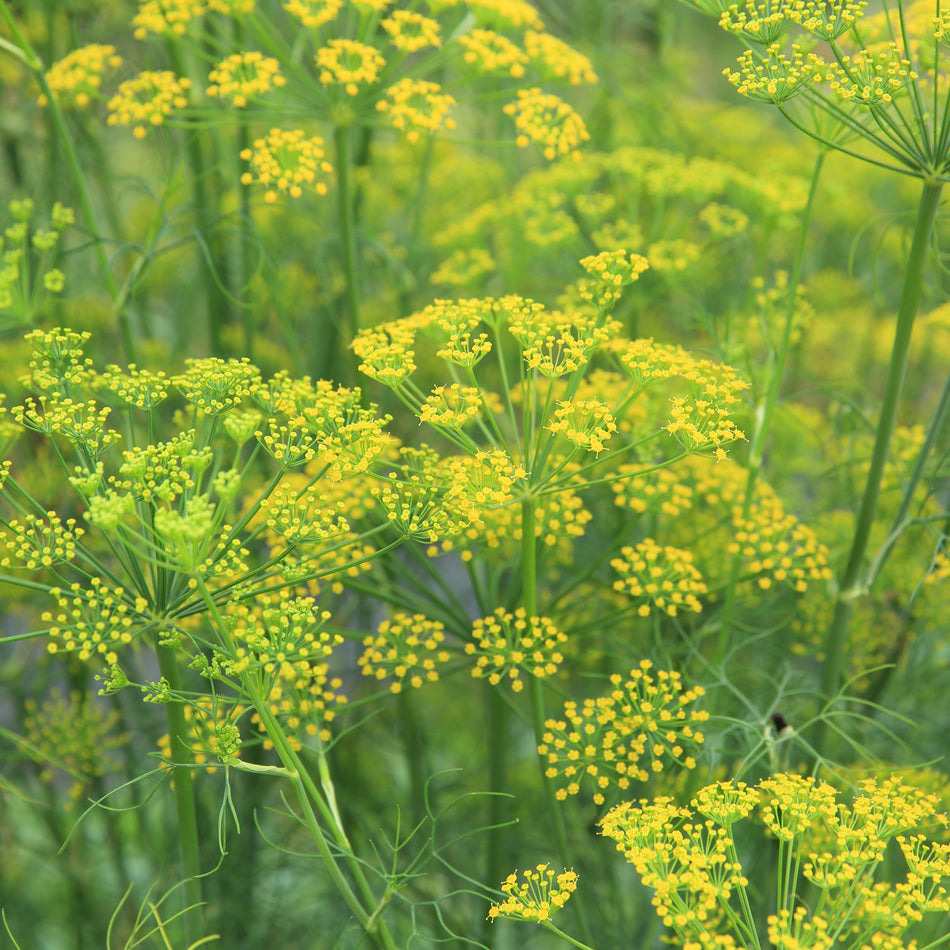
Fennel
Foeniculum vulgare spp. vulgare var. vulgareA versatile herb from the kitchen to the apothecary, fennel is traditionally used in herbal medicine to relieve uncomfortable indigestion and support breastmilk production in nursing moms.*
A flavorful herb benefitting digestion to motherhood.
What are the Benefits of Fennel?
From bulb to frilly frond, fennel has been a trusted herbal remedy for centuries. Most commonly known as a carminative, fennel helps to relax muscles in the digestive tract helping to alleviate uncomfortable cramping, gassiness, and bloating.* The key to this herbal power resides in its high essential oil content, typically found in the seeds.
Fennel’s wide range of medicinal benefits make it the perfect herb to always keep on hand. In addition to its digestive support, herbalists of the ages have used fennel for everything from helping to alleviate water retention to supporting lactation in breastfeeding mothers.*
Folklore & Historical Use of Fennel
Many ancient cultures throughout history have revered fennel for its charming properties and their belief in its power to bestow long life, courage, strength, and even to ward off evil spirits – all of which may have been hints to the plant’s actual medicinal powers.
In India, Ayurvedic healers praised fennel for its ability to balance the three body types, or doshas. In Traditional Chinese Medicine, practitioners used fennel as a warming herb to address issues related to the stomach. In the Mediterranean region, fennel’s native home, ancient physicians like Hippocrates, Pliny the Elder, and Dioscorides praised fennel for its ability to soothe occasional indigestion and to help mothers in the production of breastmilk.*
While fennel seeds are most commonly used in herbal medicine, every part of fennel, from bulb and stem to leaf and seed has found its way into culinary creations around the world. Sliced into rounds and soaked in simple syrup, fennel stems make for sweet, black licorice-y flavored after-meal candies. Its bulb can be sautéed or baked as a side dish in and of itself or slivered and eaten raw atop salad. Find its seeds stuffed into sausages and bread doughs such as a classic rye loaf. Have you ever been served a spoonful of dried fennel seeds after a rich meal at an Indian restaurant? This classic tradition is the perfect marriage of flavor and function!
Given its relationship to the digestive system and unique flavor, it’s no surprise fennel is infused into so many mealtime traditions.
Botanical Description & Habitat
There are three types of fennel: sweet fennel, commonly known as Roman fennel, with its sweet bulbs, used in Mediterranean cooking; onion-fennel, with its edible leafy sheaths; and bitter fennel, which is traditionally used in herbal medicine. We’re partial to bitter fennel, Foeniculum vulgare spp. Vulgare var. vulgare, where its genus comes from the Latin name for the plant, foen, or “hay,” the scent of the plant’s dried leaves.
Native to the Mediterranean region, bitter fennel is a hardy and short-lived perennial with yellow flowers organized in the form of an umbrella with threadlike leaves. Bitter fennel thrives in full sun and well-drained soils, growing well in coastal regions.
When To Use Fennel
As a post-meal digestive to soothe indigestion.
3-5 cups per day to encourage lactation.
The Business of Sustainable Plants
Our business is rooted in plants, and for us, it’s a business imperative that we care for the ecosystems where these plants live and thrive. We believe that everything is interconnected, which means supporting ecosystems and the farmers and collectors who harvest and gather our herbs. Finding opportunities to reduce or eliminate emissions at the source, we support organic and regenerative farming practices as well as voluntary certifications like Organic and FairWild. These ensure the absence of pesticides, herbicides, as well as the ongoing sustainability of wild collection, and the health and livelihoods of the collectors who forage. Josef Brinckmann, Traditional Medicinals’ Research Fellow, Medicinal Plants and Botanical Supply, asserts, “Everyone has a role to play in preserving biological diversity. One way of doing that is by equitably supporting the local people to serve as stewards of the land.”
It Starts with Organic
We choose to source organic because we believe in the positive impacts it has on environmental sustainability, biodiversity, and overall ecosystem health. Organic helps us increase transparency while prioritizing consumer well-being and farmer success, which is key to producing the high-quality herbs we source. In 2021, we procured 2.73 million pounds of certified organic herbs, over 99.7% of our total botanical herbs purchased. Volumes were down slightly from FY20 due to timing of inventories received.
The impact from organic farming creates a vital ecosystem through improved soil health, water quality, pollinator habitats, and biodiversity. Organic farms also have increased carbon sequestration potential through long-term carbon storage in the soil, helping to mitigate climate change.
One of the benefits of organic that we most value is farmer health. We care deeply about the people who produce our herbs, ensuring that they are not exposed to synthetic chemicals found in conventional agriculture.
Fair Trade
We believe that everyone deserves a fair wage for hard work. That’s one of the reasons why we’re committed to fair trade. Traditional Medicinals® is a registered Fair Trade “brand holder”, “licensee” and “manufacturer,” and our products are certified by Fair Trade USA, an independent third-party certifier. We were an early adopter of Fair Trade, having launched our first fair trade tea product in 1998, just one year after Fairtrade International (FLO) was established. We continue to work closely with our network of producers to help them to implement fair trade standards and get certified.
Mother's Milk® Tea
Belly Comfort® Peppermint Tea
Throat Coat® Sweet Orange Fennel Lozenges
Smooth Move® Chamomile Tea
Additional Information
Important Precautions:
Avoid fennel if you are allergic to plants in the parsley (Apiaceae) family. As always with new ingredients, consult your healthcare practitioner prior to use if you are pregnant or breastfeeding.
Legal Disclaimer:
The information and other content in this article are designed to provide a general overview of the botany, cultural history, and traditional uses of this herb. It is not intended and should not be construed as health advice. Every person is unique and you should consult with your health care provider before using any herbal product or supplement.

